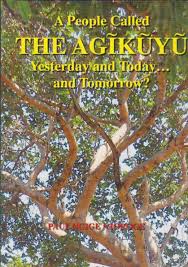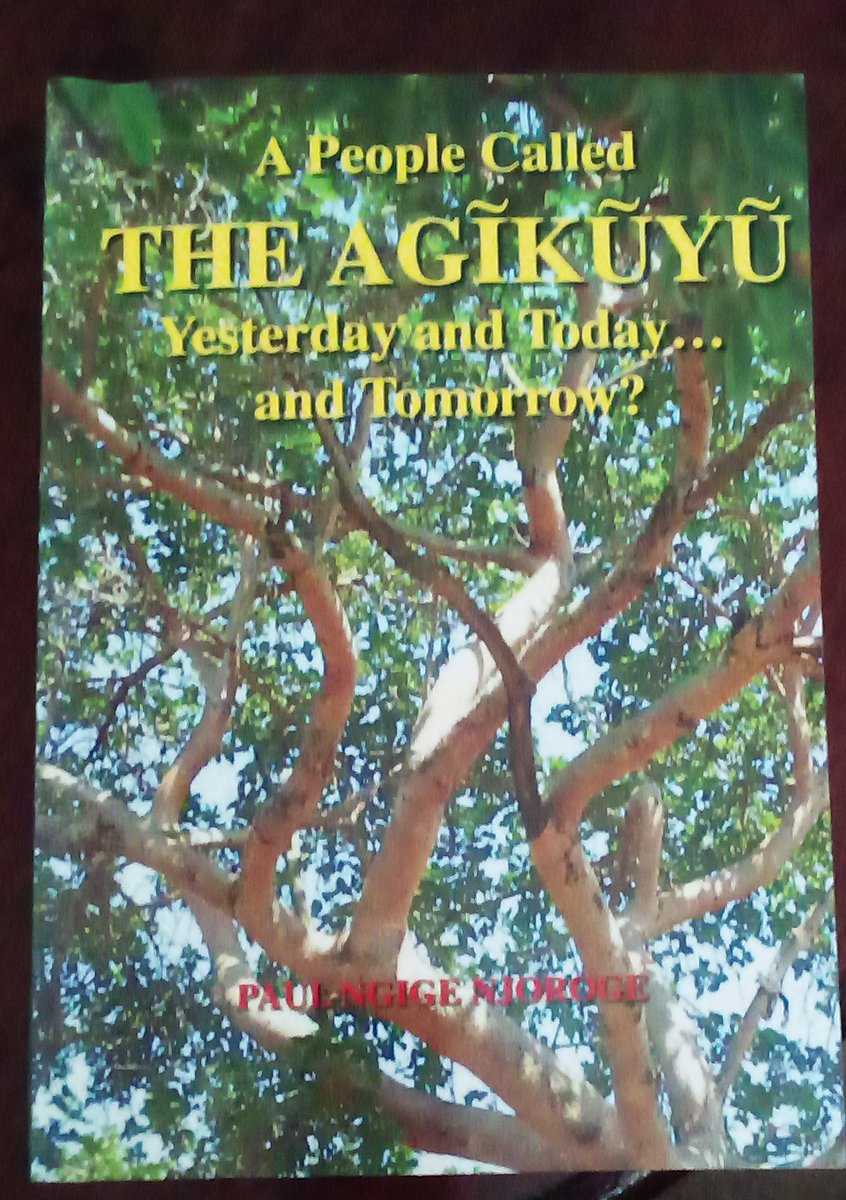
In case you missed our Saturday thread 👇👇
The Agìkūyū Staff ( Mūthìgi) that bear psychic effects
Whenever there is a gathering of elders, be it a meeting, ceremony, or ritual, it is usual to see one or all of the elders holding a Mūthìgi (staff.)
The Agìkūyū Staff ( Mūthìgi) that bear psychic effects
Whenever there is a gathering of elders, be it a meeting, ceremony, or ritual, it is usual to see one or all of the elders holding a Mūthìgi (staff.)

Ideally, a staff in many African communities is a symbol of power. However, among the Agìkūyū there is more to this. There are staff among the Agìkūyū that actually reflect psychic effect on the bearer. These types are 3.
The first is a long staff that is bent at the top. This is the Seer’s staff Mūthìgi wa Mūrathi. Other than portraying the sacerdotal authority in relation to the mysteries of the universe, the seers originally used their staff as a calculating device.
A close look at the seers staff, there are nine visible knots or rings. The knots are number 1-9 but the graduation lacks a knot for zero. Zero is represented by the end grip of the hand. When confronted by difficulty additional sums related to past or future events,
the seer holds the staff horizontally with his two hands and works the staff from the left; the lowest unit 1 to the right; the highest unit 9. As he touches the knots in calculations in tenths, hundredths and thousandths, shuts the eyes and enters into trance.
When the addition is over, he holds the staff upright and tells out the answer.
The second Mūthìgi was the Judicial staff (Mūthìgi wa gutuithania cira.) This one forms two branches at the top. This staff is slightly shorter than the holder.
The second Mūthìgi was the Judicial staff (Mūthìgi wa gutuithania cira.) This one forms two branches at the top. This staff is slightly shorter than the holder.
The formation of two branches at the top signifies ancestral spirits.
It means the bearer when holding difficulty assignment his ancestors spirits would readily come to his assistance. It should be noted 1 (one) signifies the Omnipotent Ngai and 2 (two) signifies the spirits.
It means the bearer when holding difficulty assignment his ancestors spirits would readily come to his assistance. It should be noted 1 (one) signifies the Omnipotent Ngai and 2 (two) signifies the spirits.
In land cases elders carry such staffs because the land or soil belongs to three rightful owners, The dead, The living and the unborn. (We will discuss this land issue soon in a thread) The unborn are represented by Ngai. It should be noted in all land disputes, cases
were taken Kìharo (out in the open theatre) where Mūthage (the African candelabrum) tree was planted as a court emblem. Its psychic awe-inspiring effect; gave court sittings the seriousness they deserved in delivering justice.
The third Mūthìgi wa Ūtongoria(the leadership staff) is usually a straight staff. It might be decorated with family totem and other information related to the leadership lineage. In expression of family’s or empire’s treasures, the staff might be made of precious minerals.
This staff is the most valuable in terms of economic value and priceless in sentimental values because it is a property of the whole lineage of rulers. Its value in leadership is at par with the leaders or kings ring that is the seal of the kingdom. Consider the great epic of
Maharajah, losing his ring only to be found by a contented sage turned beggar.
This information was obtained in an oral interview with Dr Samuel Kamitha, a trained taxidermist and cultural anthropologist, and Mūtonyi.
This information was obtained in an oral interview with Dr Samuel Kamitha, a trained taxidermist and cultural anthropologist, and Mūtonyi.
This set of 6 books is for children and adults eager to learn Gìkūyū language. Each comes with a teacher's guide to help plan, execute, and evaluate weekly goals. A copy is 600, A set is 3,600. You get a free children's story book. Orders Via DM,SMS/ WHATSAPP us on 0790-224189 

The author under took 10 years of indepth research of the Agìkūyū community and documented his findings in this 919 pages of a book. It's a must have for anyone looking to understand the Mūgìkūyū from a historical, contemporary and futuristic perspective
Price: 3,700.
Price: 3,700.

This Saturday we begin a long series of thread, and open conversations about Marriage as it was in the traditional way all things from when boy met Girl, Rūracio, Ngurario, and so so much more. Purpose to be part of this long long long series.
• • •
Missing some Tweet in this thread? You can try to
force a refresh



























